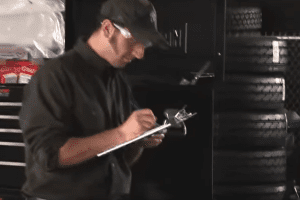
Toxins In Artificial Turf Under Probe. Although concerns with toxins in artificial turf continue to spark great controversy, it seems there is no federal report outlining the potential adverse health effects caused by tire crumble/ground rubber, which is used to pad turf, reported Philly.com. In June we wrote that the Environmental Protection Agency (EPA) was looking […]

Toxins In Artificial Turf Under Probe. Although concerns with toxins in artificial turf continue to spark great controversy, it seems there is no federal report outlining the potential adverse health effects caused by tire crumble/ground rubber, which is used to pad turf, reported Philly.com.
In June we wrote that the Environmental Protection Agency (EPA) was looking at its earlier endorsement of shredded tire use to cushion play areas from falls. The Environmental News Service cited EPA documents released by the environmental advocacy group Public Employees for Environmental Responsibility (PEER) in which the EPA stated additional research was called for on ground rubber safety.
A limited study was conducted by the U.S. Consumer Product Safety Commission (CPSC) to look into the safety of the fibers found in the artificial product, but, said Philly.com, the agency announced this summer that turf is safe. Not everyone agrees.
Experts have long been criticizing the safety of tire crumb used nationwide in playgrounds and sports fields and its use has concerned politicians and consumer watchdog groups for some time over the potential health and environmental hazards that come from recycled tire rubber. Crumb rubber is used as artificial dirt between plastic blades of grass on many fields.
Use of artificial turf has grown exponentially in recent years and is seen as a way to cut costs and water use. But, lead chromate pigment is sometimes used to make the grass green and maintain its color in sunlight. It remains unclear how widely the compound is used; however, the New Jersey Health Department found lead in both of the nylon fields it tested earlier this year. Both were AstroTurf brand surfaces.
A year ago, said Philly.com, the EPA began its probe into artificial turf to determine what chemicals it releases and its impact on children. Artificial turf fields are opening at high rates in this country, about 800 annually; a concern that is forcing the federal government into announcing one way or another about turf’s safety, noted Philly.com. Of note, the Environmental News Service previously wrote that the First Family had tire crumb installed as a playing surface for their children.
Some believe the EPA is stalling, such as Jeff Ruch, director of Public Employees for Environmental Responsibility (PEER), who said “If safeguarding children’s health is a top priority at EPA, why can’t this multibillion-dollar agency afford to take a hard look at what is in our playgrounds, schoolyards, and athletic fields?” quoted Philly.com. It is widely known that the substance can contain arsenic, cadmium, chromium, lead, mercury, and dangerous hydrocarbons, as well as particulates, latex, fibers, and even volatile organic compounds and dyes; tests confirm humans can absorb lead in turf. Still, the artificial turf industry has long denied its products are dangerous, despite that recent tests conducted by New Jersey health officials found potentially hazardous lead levels on worn nylon and nylon-blend athletic fields. Those findings forced the EPA to take a look at turf, especially when it was revealed that about 25,000 tires are used to create a typical football field, noted Philly.com.
Some are concerned with what is being tested. Eric Wachter, an EPA official recently wrote that it was not “assessing the health effects” of crumble, but was “monitoring methods” for its testing, quoted Philly.com. Ruch expressed shock saying that, “EPA misled parents and the public into believing it was actually addressing potential toxic exposure risks to kids,” reported Philly.com. Retired toxicologist and a former EPA employee, Suzanne Wuerthele, said she advised the agency about the crumb issue years ago and said there are tests, which can be used to determine the product’s safety.
Cost is clearly a concern. There are—citing the Synthetic Turf Council—some 5,000 turf fields in this country, at a cost of from $500,000 to in excess of $1,000,000 each. No small issue if a government agency publicly confirms the dangers with turf. Organic alternatives, for instance, pulverized coconuts, are seen as more expensive, explained Philly.com.
The personal injury attorneys at Parker Waichman LLP offer free, no-obligation case evaluations. For more information, fill out our online contact form or call 1-800-YOURLAWYER (1-800-968-7529).


